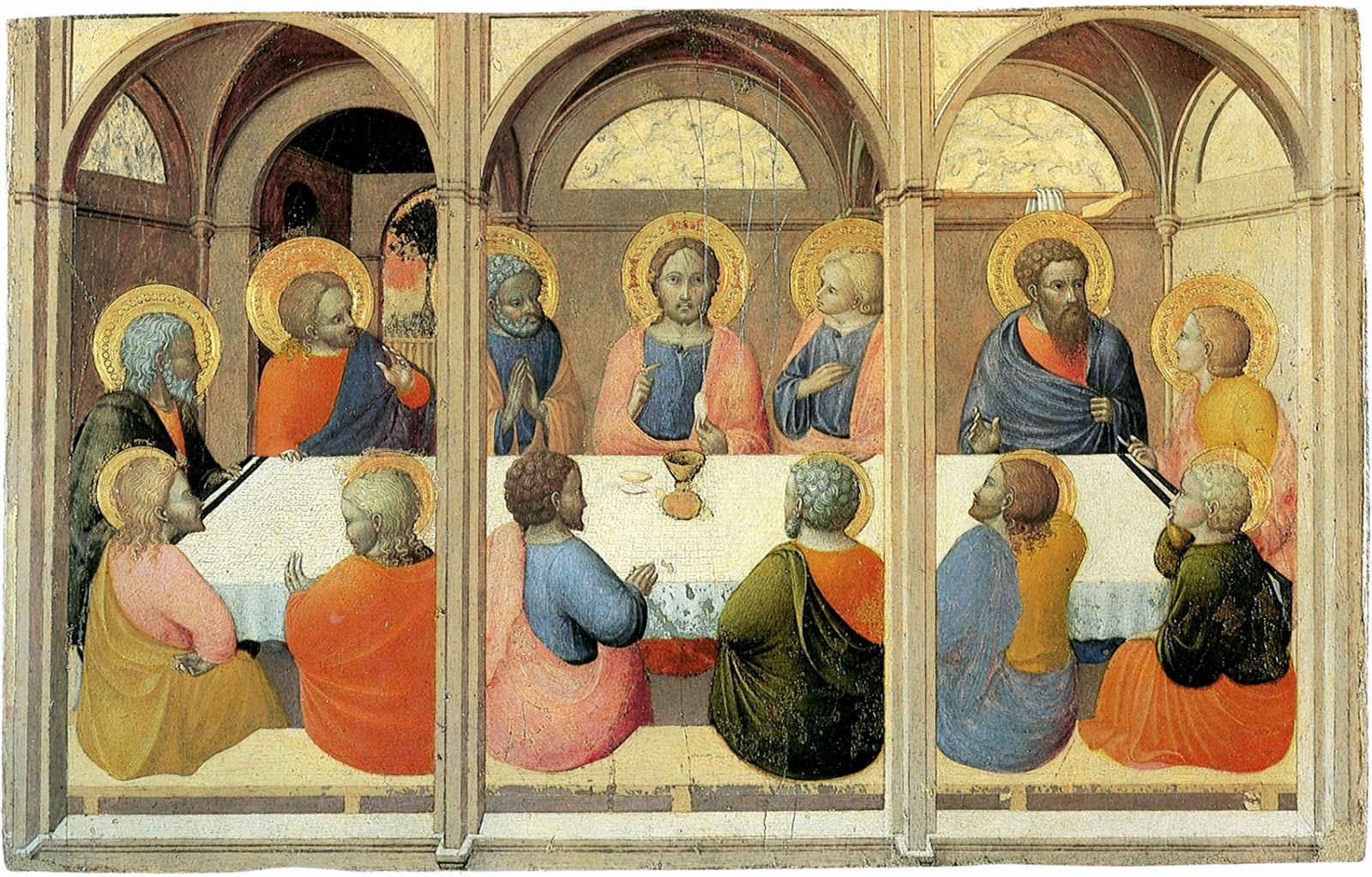…An even more exacting reality is the Eucharist as the chosen self-limitation of God. As modern desert father Carlo Carretto said, “Either Christ is a raving madman, or He is truly omnipotent and merciful Love, who has found the most direct road to our hearts, a road that will not frighten or scare us, a road that is as simple as could be.”[1] [s2] Sharing his very life—body and soul, humanity and divinity–through the humble, sustaining consumption of transubstantiated bread and wine is as divinely self-limiting as one can possibly imagine. But do imagine, as Carlo Carretto does, what that tells us about God:
Why do you find it strange that I should have wanted to become bread through love? Have you no experience of love? When you have loved, really loved, have you not wanted to become bread for your beloved? … You can argue about the Eucharist as much as you like, but on the day love really takes hold of you, perhaps you will understand that Jesus is not a fool or a madman. To be able to become bread! To be able to nourish the whole world with his flesh and blood! I am terribly selfish and fearful when faced with suffering, but if I could become bread to save all humanity, I would do it. If I could become bread to feed all the poor, I would throw myself into the fire at once. No, the Eucharist is not something strange: It is the most logical thing in the world, it is the story of the greatest love ever lived in the world, by a man named Jesus.[2]If we cannot understand the Eucharist through the strange logic of love, we cannot understand the incarnation. The Eucharist is a natural extension of the Incarnation of God. It is also a divine extension of the law of love: “You shall not … stand by idly when your neighbor’s life is at stake” (Lev 19:16).[3]
[1]Carlo Carretto, The God Who Comes (Maryknoll, NY: Orbis Books, 1974), pg. 113.
[2]Ibid., 115-6. Also, as my colleague Jeff Tranzillo noted, Carretto’s insight could be extended fruitfully to the “confinement” of the Eucharistic Jesus in the tabernacle, waiting for union with us.
[3]The Leviticus passage is from the New English Translation. In his first post-synodal apostolic exhortation, Pope Benedict offers a beautiful reflection on how the self-giving of the Eucharist, understood as Carretto describes, draws humanity into Jesus’ gift of self to the Father, altering the very dynamic of the world. “The remembrance of his perfect gift consists not in the mere repetition of the Last Supper, but in the Eucharist itself, that is, in the radical newness of Christian worship. In this way, Jesus left us the task of entering into his ‘hour.’ The Eucharist draws us into Jesus’ act of self-oblation. More than just statically receiving the incarnate Logos, we enter into the very dynamic of his self-giving. (21) Jesus ‘draws us into himself.’ (22) The substantial conversion of bread and wine into his body and blood introduces within creation the principle of a radical change, a sort of ‘nuclear fission,’ to use an image familiar to us today, which penetrates to the heart of all being, a change meant to set off a process which transforms reality, a process leading ultimately to the transfiguration of the entire world, to the point where God will be all in all (cf. 1 Cor 15:28).” Sacramentum Caritatis #11.

On Corpus Christi: "When you have loved, really loved, have you not wanted to become bread for your beloved?"
Blessed Feast of Corpus Christi, everyone.
I deeply appreciate Carlo Carretto, and think his spiritual writing ought to be better known. I was glad to be able to include a clip on how radical the idea of “Corpus Christi” is, through his eyes and work. From the book, ch 3:
***
If you are interested in buying a signed copy of the book, I have a few left. You can purchase one for $25 plus shipping at www.tobextended.tictail.com. However, I am on vacation visiting family, and will not be able to mail any out until July 7. Blessings on your summer!